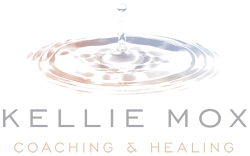Welcome to part two of my nourishing resources blog post. In part one I shared resources to support your heart and mind as well as lifestyle recommendations for strengthening all the parts of you. I recommend going back to my previous post if you missed it, as it goes hand-in-hand with the information below. Nourishing our bodies with nutrients only goes so far in building resilience—our minds, hearts, and spirits need attention, too. Our nervous system is at the core of our health and healing, so you may also want to check out my post with tools for managing anxiety as well. And, as I said before, the first and most important step is being gentle with yourself.
Below I offer some basic recommendations for diet and supplements as well as a number of links to some of my favorite physicians and healers who are sharing information on immune support and symptom management.
*As always, the information provided here is not a substitute for medical advice. I dispense homeopathic advice to clients only and with supervision. As such, I offer general homeopathic information below with further resources for your own exploration. I am in no way affiliated with any of the sites and/or people I link to here.
Building Resilience
This pandemic has so many of us feeling out of control and overwhelmed by uncertainty. My overwhelm comes and goes and comes again, even as I feel empowered to balance my immune system at home. Whatever you’re feeling right now is OK. And, I want to offer this reminder that you do have power in this pandemic. You can take care of yourself and your family, and you can offer support to others who may need it. What we consume in the form of food, thoughts, news, and nature, for example, does matter. Read on for some nourishing resources…
Consume nourishing foods.
Certain foods have anti-viral and anti-inflammatory effects. Load up on these as much as possible (and avoid the foods that depress immune function, too).
Foods to include (in addition to lots of fruits and veg):
- Homemade or high-quality store-bought bone broth
- Coconut oil
- Raw garlic, onion
- Oregano, thyme, ginger, turmeric
- Fermented foods
- Medicinal mushrooms: I love this chai tea recipe, which is an easy way to incorporate Reishi mushrooms.
- Herbal infusions with dried herbs like raspberry leaf, lemon balm, nettle and chamomile (available from Mountain Rose Herbs or Starwest Botanicals).
Foods to limit:

Compost for our new compost bin. I love that we can see all the goodness we’re putting in our bodies (and how much we’re NOT putting in the trash) when we walk it out to the garden.
Supplements to Consider
*There are so many options for supporting your immune system. These are the basics that we turn to. Dosage recommendations are provided in multiple links below.
- Vitamin C
- Zinc
- Vitamin D3/K2
- Cod Liver Oil for EPA/DHA
- Probiotics: A good way to get probiotics is from fermented foods if you don’t want to use a supplement.
- Thyme Tincture: We use this for lung support when symptoms arise. Thyme is also a good anti-viral/anti-bacterial herb.
- Astragalus tincture: Powerful immune-boosting herb
- Turmeric (Curcumin): Turmeric is a spice that contains the anti-inflammatory compound curcumin.
- We also take a multi vitamin with selenium, B vitamins, and extra magnesium.
Homeopathy
I highly encourage working with a homeopath to support your immune system. I’m unable to take acute-care cases as a student, but I’m happy to refer you to someone. Homeopathy is something you can learn to use on your own as well for mild cold and flu symptoms. That is the beauty of homeopathy—it is safe and effective. The challenge is that homeopathy is individualized, so the remedy that works for your daughter’s runny nose may not be the remedy that works for your son with similar symptoms.
There are number of homeopaths who have an online presence, and they offer free information so you can begin learning. If you have a kit at home with the below remedies, you’ll be well-positioned to treat mild cold and flu symptoms. Remedies are typically $5-$10 and can be purchased at Whole Foods, Castle Remedies, or other online stores.
*Another reminder: this is not a substitute for medical advice. If you feel short of breath or in any way concerned about your symptoms, seek medical attention.

- Ferrum Phos Cell Salt
- Kali Mur Cell Salt
- Aconitum
- Allium Cepa
- Antimonium Tart
- Arsenicum Album
- Belladonna
- Bryonia
- Camphora
- Eupatorium
- Drosera
- Ferrum Phos
- Gelsemium
- Hepar Sulph
- Influenzinum
- Ipecacuanha
- Kali Bichromium
- Kali Carbonicum
- Oscillococcinum
- Phosphorus
- Pulsatilla
- Rumex Crispus
- Spongia
- Sticta Pulmonaria
Other Nourishing Resources
Homeopathy
- Donna Powers has a course specific to Coronavirus.
- Robin Murphy, ND offers a free webinar on coronavirus.
- Miranda Castro offers free general webinars. Also, her Homeopathic Thoughts for Right Now article on Facebook provides specific information for colds, coughs, flus, and coronavirus symptoms.
- Joette Calabrese has a wealth of information for beginners to homeopathy.
Holistic and Functional Medicine
- Aviva Romm, MD is hands down one of my favorite physicians out there. She is updating her blog daily with information. And, she has many other offerings during this time, too.
- Roger Seheult, MD provides lectures on medical topics that are relevant and informative. Some of his lectures can also be found on YouTube. *See Dr. Seheult’s lecture on Septic Shock & Vitamin C, as this speaks to the importance of Vitamin C as a possible treatment for the late stages of coronavirus.
- My blog: How We Approach Flu Season has some links to a few additional resources and research.
- Elisa Song, MD’s Healthy Kids Happy Kids website is a wealth of information. She is a holistic pediatrician with a number of useful blog posts on immune support and how to manage symptoms.
- Diana Quinn, ND offers immune support strategies and more.
- Kara Fitzgerald, ND offers information on functional medicine and is connecting us via Instagram to research and possible treatments for coronavirus.
- Mark Hyman, MD has loads of general wellness information and recently posted about how to protect yourself from coronavirus.


